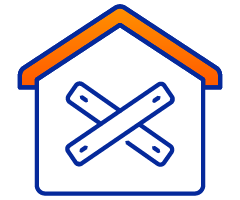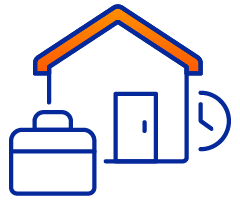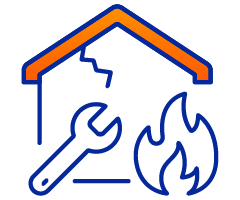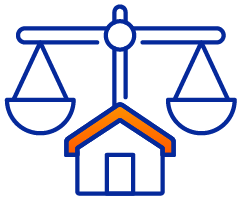Start Here
Homepage Bottom Form
We will get back to you as soon as possible.
Please try again later.
Common Fire Insurance Claim Mistakes Homeowners Make
🔥 List of Common Insurance Claim Mistakes After a Fire
Filing a fire insurance claim is stressful, emotional, and time-consuming.
Unfortunately, many homeowners make
avoidable mistakes that delay settlements, reduce payouts, or even result in
claim denials.
This detailed checklist will help you
avoid the most common pitfalls and
protect your right to full compensation.
🏠 1. Waiting Too Long to Contact Your Insurance Company
- Failing to notify your insurer within 24–48 hours of the fire.
- Assuming your agent will automatically file the claim for you.
- Waiting until cleanup or repairs start before reporting the loss.
- Not getting a claim number immediately for tracking.
- Forgetting to ask for the adjuster’s name, contact info, and timeline.
📸 2. Not Documenting the Damage Properly
- Failing to take photos and videos immediately after the fire.
- Cleaning or throwing away damaged items too soon.
- Not documenting all affected areas, including smoke, soot, and water damage.
- Forgetting to capture serial numbers or labels on appliances and electronics.
- Taking photos that don’t show scale or context (e.g., close-ups only).
- Not saving evidence before cleanup crews arrive.
💬 3. Not Understanding Your Policy Coverage
- Skipping the step of reading your full policy (including exclusions and endorsements).
- Assuming “fire coverage” includes smoke, soot, or water damage — it might not.
- Overlooking coverage for temporary housing or ALE (Additional Living Expenses).
- Not realizing depreciation and ACV vs. RCV differences affect your payout.
- Forgetting that policy limits cap the total payout, regardless of damage value.
- Assuming code upgrades or debris removal are automatically included.
🧾 4. Losing Track of Receipts and Expenses
- Not saving receipts for hotels, meals, and travel while displaced.
- Failing to record mileage for claim-related travel.
- Forgetting to log restoration or repair-related purchases.
- Not using an Expense Tracker (like the one from House Fire Solutions).
- Waiting until the end of the claim to organize documentation.
- Not backing up receipts digitally.
🧰 5. Starting Repairs Before the Adjuster Inspection
- Hiring contractors before the insurance adjuster has inspected the damage.
- Cleaning up debris or repainting walls before documentation.
- Authorizing restoration companies without written insurer approval.
- Removing damaged flooring, drywall, or insulation too soon.
- Making repairs that change the original condition — invalidating parts of the claim.
💵 6. Accepting the First Settlement Offer
- Believing the first offer is “final.”
- Feeling pressured to sign a release of claim too early.
- Not realizing you can negotiate supplemental payments if costs rise.
- Accepting payments before full damage is assessed.
- Failing to compare your adjuster’s estimate with independent contractor quotes.
- Signing off on a settlement without understanding depreciation recovery.
🧑💼 7. Not Getting Independent Estimates
- Relying only on the insurance adjuster’s scope of loss.
- Not getting at least two local contractor estimates for comparison.
- Allowing insurers to use outdated or low pricing software.
- Ignoring differences between actual rebuild cost and estimate value.
- Assuming your adjuster’s recommended vendors are the cheapest or best.
⚖️ 8. Misunderstanding Depreciation and Reimbursement
- Not realizing ACV (Actual Cash Value) is lower than RCV (Replacement Cost Value).
- Forgetting to file for depreciation reimbursement after repairs are complete.
- Losing track of deadlines to submit proof of replacement receipts.
- Assuming the insurer will automatically pay the remainder.
- Failing to read how recoverable depreciation works in your policy.
🧯 9. Poor Communication With the Adjuster
- Not keeping written records of calls, emails, and texts.
- Discussing key claim issues over the phone without follow-up confirmation.
- Using emotional or confrontational language instead of facts.
- Failing to clarify what documents the adjuster still needs.
- Not confirming claim updates or timelines in writing.
🕒 10. Missing Deadlines
- Not submitting documentation or proofs of loss by required dates.
- Forgetting to file supplemental claims within time limits.
- Delaying submission of receipts for ALE reimbursements.
- Not tracking insurer response time deadlines (varies by state).
- Missing appeal or dispute filing deadlines.
💡 11. Overlooking Smoke, Soot, and Water Damage
- Only reporting visible fire damage, ignoring smoke-affected areas.
- Underestimating odor, HVAC contamination, or unseen residue.
- Skipping attic, crawlspace, or duct inspections.
- Not hiring certified cleaning or restoration professionals.
- Forgetting to test for air quality or chemical exposure.
🧑🔧 12. Hiring the Wrong Contractors or “Storm Chasers”
- Hiring companies that show up unsolicited after a fire.
- Paying contractors before work begins.
- Not verifying licensing and insurance.
- Failing to get multiple written estimates.
- Signing vague contracts without clear scope or timeline.
- Ignoring red flags like “We’ll handle your insurance for you.”
⚠️ 13. Not Getting Help When Needed
- Trying to handle a complex fire claim alone.
- Not consulting a public adjuster or House Fire Solutions consultant for guidance.
- Not knowing when to involve a fire restoration specialist or attorney.
- Missing opportunities for appeals or supplemental claims.
- Feeling overwhelmed and settling too quickly.
🧠 14. Failing to Stay Organized
- Not using a Claim Log to track conversations and deadlines.
- Mixing personal and insurance paperwork.
- Losing important claim-related emails or documents.
- Forgetting to back up files digitally.
- Letting stress lead to disorganization — which insurers can exploit.
🧾 15. Underestimating Emotional Fatigue
- Trying to rush through the process just to move on.
- Avoiding tough questions because of stress.
- Not asking for help from trusted family or professionals.
- Overlooking important steps in exhaustion or frustration.
- Neglecting to pace yourself through the process — recovery is a marathon, not a sprint.
💬 Bonus Tip from House Fire Solutions
Your insurance claim is a business transaction — not a favor.
The more you document, verify, and follow through, the stronger your recovery will be.
Our Team Helps You Navigate Insurance, Restoration, and Rebuilding
It is a long established fact that a reader will be distracted by the readable content of a page when looking at its layout.

Board-Up
Our Network of Board Up Specialist Will Secure your property fast

Temp Housing
We'll Help You Find Safe Shelter while you recover

Public Adjusters
Our Network of Fire Damage Adjusters Will Fight Help for a fair insurance payout

Investors
Our Partner Specializes in Buying Fire Damaged Homes So you Can Sell your home as-is

Content Cleaning
Restore what matters most

Restoration
Bring your home back to life

Attorneys
We have a network of Protect your rights and claims

Mental Health
Support for you and your family
Want To See If We Can Help You
If you'd like to speak with us today about purchasing Social Security, Personal Injury, Workers' Compensation or Employment Law Leads.
Homepage Bottom Form
We will get back to you as soon as possible.
Please try again later.